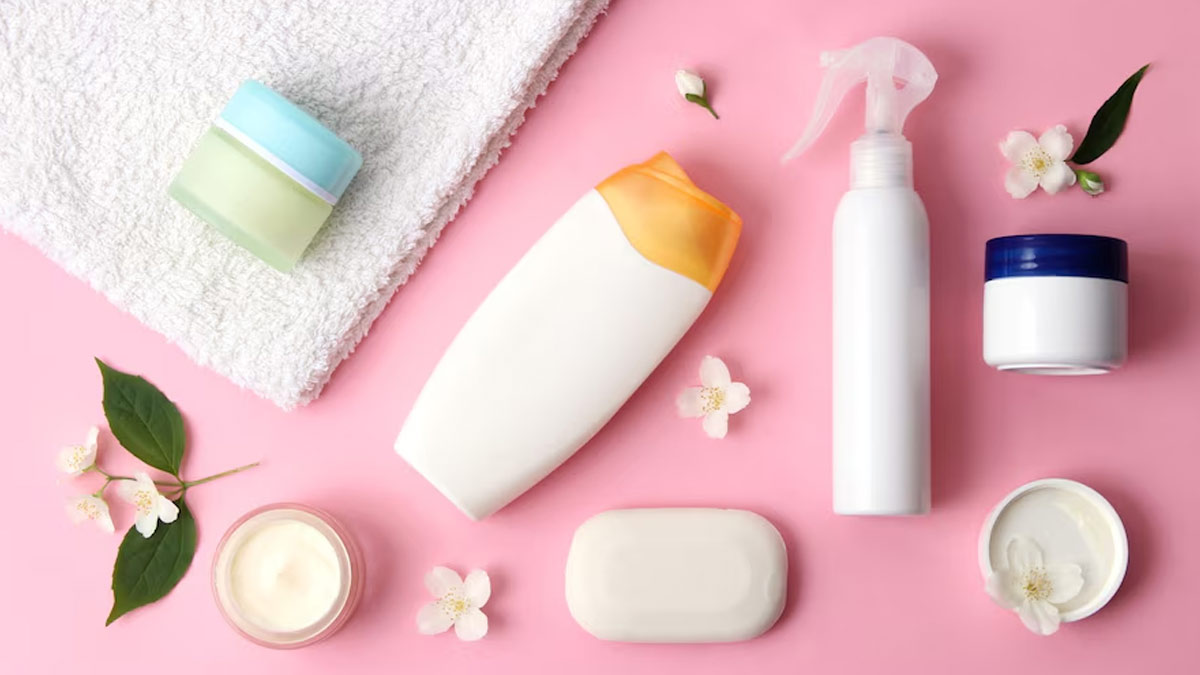
As parents, we constantly strive to provide the best care for our children. From the food they eat to the products we use on their skin, every choice matters. One often overlooked aspect is the tiny ingredient labels on personal care products. These labels hold the key to ensuring the safety and effectiveness of what we apply to our children's delicate skin. Given how quickly children's skin absorbs these substances, it's essential to understand and scrutinise these ingredients. We spoke to our expert Prasanna Vasanadu, Founder, Tikitoro, Facilitator and Parent Educator with Parenting Matters, who explained why reading these labels is so vital for our children's health.
Table of Content:-
Why Do Ingredient Labels Matter?

What we apply to our bodies gets absorbed into the skin, and reading the ingredient list provides us with the satisfaction of understanding that our skin is safe. It also gives a clearer picture of the composition.
"Since a child’s skin is more sensitive than an adult’s, they are more prone to allergies, irritation, and other skincare issues. By carefully reading product labels, parents can select products that suit their children's unique needs," said Vasanadu.
According to the Australian Academy of Science, ingredients can be either natural or synthetic, but their effects on our health primarily depend on the chemical compounds they contain.
Also Read: Baby Skincare: Expert Lists Ingredients To Be Avoided In Baby Care Products
Recognising Possible Allergens

"Many ingredients found in personal care products can potentially cause allergic reactions. These ingredients include sulphates, parabens, and other toxins. Reactions like redness, itching, or more serious conditions like eczema are more common in children with sensitive skin or pre-existing allergies," highlighted Vasanadu.
Reading the ingredient labels can help identify potential sensitivities and choose products that are hypoallergenic or toxin-free. From face wash to lotions, what we put on our bodies gets absorbed into the skin within 20 Secs and gets absorbed enough within 25 minutes to excrete it all.
It is also important to look for expiration dates and replace products as needed. Expired products may lose effectiveness, providing less protection and benefits than intended, and may cause skin irritation.
What is INCI?

Have you ever noticed the chemical-sounding names when reading an ingredient list? "Those names might sound like chemicals when, in fact, they can be natural ingredients. This naming system is called INCI (International Nomenclature of Cosmetic Ingredients), which sets a universal standard for product ingredient names," said Vasanadu.
It just takes a moment to Google it and find out that it’s not as intimidating as it sounds. For example, 'Butyrospermum parkii butter' is shea butter, and 'Cocos nucifera' is coconut oil.
Also Read: Understanding Skin pH: Expert Explains Importance Of Skin pH And How To Tell If Yours Is Healthy
Avoiding Harmful Chemicals
Parabens, phthalates, sulphates, and formaldehyde-releasing compounds are among the ingredients that have been connected to many health hazards, including cancer, reproductive issues, and endocrine disruption, said Vasanadu.
For example, parabens, which are frequently used as preservatives, can mimic oestrogen and disrupt young children's hormone balance. Children are more vulnerable to the adverse effects of these substances because of their developing bodies, so it is better to look for products with gentle formulations that suit their skin.
Ensuring the Safety and Effectiveness of Products
Vasanadu concluded, "Understanding ingredient labels helps ensure the efficacy and safety of personal care products. For example, chemicals like oxybenzone or avobenzone, which protect against harmful UV radiation, are commonly found in sunscreens. However, some children may experience allergic reactions or irritation from certain chemical sunscreens."
By learning about these ingredients, parents can choose mineral or physical sunscreens with zinc oxide, titanium dioxide, and other actives like Centella Asiatica, which are safer, more effective, and soothing for kids' delicate skin.
[Disclaimer: This article contains information provided by an expert and is for informational purposes only. Hence, we advise you to consult your own professional if you are dealing with any health issues to avoid complications.]
How we keep this article up to date:
We work with experts and keep a close eye on the latest in health and wellness. Whenever there is a new research or helpful information, we update our articles with accurate and useful advice.
Current Version